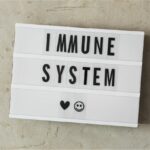Did you know that alcohol can have a significant impact on your immune system? In fact, it can lead to decreased white blood cell count, impaired immune response to infections, and increased susceptibility to respiratory infections.
Additionally, alcohol can delay wound healing, increase the risk of autoimmune disorders, and impair vaccine effectiveness. Understanding these effects is crucial for making informed decisions about your health.
In this article, we will explore the six best ways alcohol affects your immune system based on scientific evidence.
Decreased White Blood Cell Count
Drinking alcohol can lead to a decrease in your white blood cell count. White blood cells are an essential part of your immune system, responsible for defending your body against infections and diseases. Research has shown that alcohol consumption can have detrimental effects on the immune system, including impairing its ability to fight off infections.
One way alcohol affects immune function is by causing inflammation in the body. Alcohol is known to trigger an inflammatory response, which can disrupt the normal functioning of white blood cells. This disruption can result in a decrease in the number of white blood cells circulating in your body, making it harder for your immune system to effectively respond to pathogens.
Furthermore, excessive alcohol consumption can directly damage the bone marrow, where white blood cells are produced. This damage can further contribute to a decreased white blood cell count.
Therefore, it's crucial to be mindful of your alcohol intake and its potential impact on your immune system. By reducing alcohol consumption, you can help maintain a healthy white blood cell count and support optimal immune function.
Impaired Immune Response to Infections
Alcohol consumption can impair your immune response to infections, weakening your body's natural defense mechanisms. Research has shown that alcohol can suppress the production and function of immune cells, making it harder for your body to fight off pathogens.
Additionally, alcohol can delay the healing process, prolonging the duration of infections.
It's important to be aware of these effects and to consume alcohol in moderation to maintain a healthy immune system.
Weakened Immune Defenses
Improperly managing your alcohol intake can compromise your immune system's ability to effectively respond to infections. Alcohol consumption has been shown to weaken immune defenses, leaving you more susceptible to infections. When alcohol is consumed, it can disrupt the balance of immune cells in your body, leading to a decrease in their effectiveness.
Research has found that excessive alcohol consumption can impair the function of important immune cells, such as macrophages and neutrophils, which are responsible for detecting and eliminating harmful pathogens. Additionally, alcohol can impair the production of antibodies, proteins that play a crucial role in fighting off infections.
Ultimately, this weakened immune response can make it harder for your body to defend against infections, increasing the risk of illness and prolonging recovery time. It's vital to be mindful of your alcohol intake to maintain optimal immune system health.
Slower Healing Process
When consuming alcohol excessively, it can lead to a slower healing process due to impairing your immune system's response to infections. Excessive alcohol consumption has been found to delay tissue repair and compromise your healing ability.
The immune system plays a crucial role in the healing process by recognizing and eliminating foreign invaders, such as bacteria and viruses. However, alcohol interferes with this process by suppressing the immune system's ability to mount an effective response.
Studies have shown that alcohol impairs the production and function of immune cells, such as neutrophils and macrophages, which are responsible for clearing away dead tissue and fighting off infections. As a result, the healing process becomes prolonged, and the risk of developing complications from infections increases.
It's important to moderate alcohol consumption to maintain optimal immune function and promote efficient healing.
Increased Susceptibility to Respiratory Infections
If you regularly consume excessive amounts of alcohol, your immune system becomes more susceptible to respiratory infections. This is because alcohol has various negative effects on the immune system, including increased lung inflammation and a higher risk of pneumonia.
Alcohol consumption can lead to an increase in lung inflammation, which impairs the immune system's ability to fight off respiratory infections. Chronic alcohol abuse can cause chronic inflammation in the lungs, making them more susceptible to infections such as bronchitis and pneumonia. Additionally, alcohol can impair the function of immune cells in the lungs, further compromising the body's ability to defend against respiratory pathogens.
Furthermore, excessive alcohol consumption can also increase the risk of pneumonia. Pneumonia is a serious respiratory infection that can lead to severe complications, especially in individuals with weakened immune systems. Alcohol weakens the immune response, making it more difficult for the body to fight off the bacteria or viruses that cause pneumonia.
Delayed Wound Healing
Alcohol consumption can have detrimental effects on wound healing. It impairs tissue regeneration and prolongs the healing process. Research has shown that alcohol interferes with the body's ability to produce new cells and repair damaged tissue. This leads to delayed wound healing.
This can have significant implications for individuals who consume alcohol regularly. It may increase the risk of complications and infections associated with slow-healing wounds.
Impaired Tissue Regeneration
Impaired tissue regeneration, caused by excessive alcohol consumption, can lead to delayed wound healing. Alcohol affects the body's ability to repair and regenerate tissues, which can have detrimental effects on the healing process. When it comes to wound healing, alcohol interferes with the body's natural mechanisms, resulting in slower tissue repair and scar formation.
Here are the impacts of impaired tissue regeneration due to alcohol consumption:
- Inhibited collagen production: Collagen is a crucial protein for wound healing, providing strength and structure to the healing tissue. Alcohol disrupts collagen synthesis, leading to weaker and less organized scar formation.
- Impaired immune response: Alcohol suppresses the immune system, reducing the body's ability to fight off infections and pathogens. This can increase the risk of wound complications and delay healing.
- Altered inflammatory response: Alcohol disrupts the normal inflammatory process, which is essential for wound healing. It can cause excessive inflammation or inhibit the necessary inflammatory signals, leading to impaired tissue regeneration.
Understanding the negative effects of alcohol on tissue regeneration is important for promoting optimal wound healing. Limiting alcohol consumption can help support the body's natural healing processes and improve overall health.
Slower Healing Process
Excessive alcohol consumption can have detrimental effects on the body's healing abilities, particularly in wound recovery. Research has shown that alcohol interferes with the intricate processes involved in tissue repair, causing delays in healing. This interference is due to the direct effects of alcohol on the cells responsible for wound healing, such as fibroblasts and macrophages. These cells play crucial roles in the formation of new tissue and the removal of debris from the wound site. When alcohol is present in the body, it impairs the functions of these cells, compromising the healing process. Additionally, alcohol consumption can lead to nutrient deficiencies, which are essential for proper wound healing. This further hampers the body's ability to heal wounds effectively. It is clear that excessive alcohol consumption significantly hinders the healing process and emphasizes the importance of moderation for optimal recovery.
Increased Risk of Autoimmune Disorders
Regular alcohol consumption can significantly heighten your vulnerability to developing autoimmune disorders. Research has shown that alcohol has a profound impact on the immune system, leading to increased inflammation and compromised immune tolerance.
Here are three ways in which alcohol can increase your risk of autoimmune disorders:
- Disruption of gut microbiota: Alcohol consumption disrupts the balance of bacteria in your gut, altering the composition of your gut microbiota. This imbalance can trigger an immune response and increase the risk of developing autoimmune disorders.
- Weakening of the gut barrier: Alcohol weakens the integrity of the gut barrier, allowing harmful substances to leak into the bloodstream. This can lead to chronic inflammation and contribute to the development of autoimmune disorders.
- Altered immune cell function: Alcohol impairs the function of immune cells, such as T cells and B cells, which play a crucial role in maintaining immune tolerance. This disruption in immune cell function can result in an overactive immune response, leading to autoimmune disorders.
It is important to note that the effects of alcohol on the immune system are dose-dependent, with heavy and chronic alcohol consumption posing the greatest risk. By moderating your alcohol intake, you can help reduce the risk of developing autoimmune disorders and support a healthier immune system.
Impaired Vaccine Effectiveness
One of the ways alcohol affects your immune system is by reducing the effectiveness of vaccines. When you consume alcohol, it can impair the immune system's response to vaccines, leading to a decrease in vaccine efficacy.
Vaccines work by stimulating the immune system to recognize and fight off specific pathogens. They contain harmless fragments or weakened forms of the pathogen, which prompt the immune system to produce a protective immune response. However, alcohol can interfere with this process.
Alcohol affects various components of the immune system, including immune cells and signaling molecules. It can impair the function of immune cells such as T cells and B cells, which are essential for mounting an effective immune response. Additionally, alcohol can disrupt the production and activity of cytokines, which are important for coordinating immune responses.
Studies have shown that alcohol consumption can reduce the production of antibodies in response to vaccines. Antibodies are proteins produced by the immune system that specifically target and neutralize pathogens. When alcohol impairs antibody production, it can compromise the ability of the immune system to recognize and eliminate pathogens, thus reducing vaccine efficacy.
- Overcoming Emotional Intimacy Challenges With Alcohol Misuse - November 18, 2023
- Overcoming Alcohol's Impact on Emotional Intimacy: 13 Essential Tips - November 18, 2023
- 6 Ways to Overcome Emotional Intimacy Challenges With Alcohol - November 18, 2023





